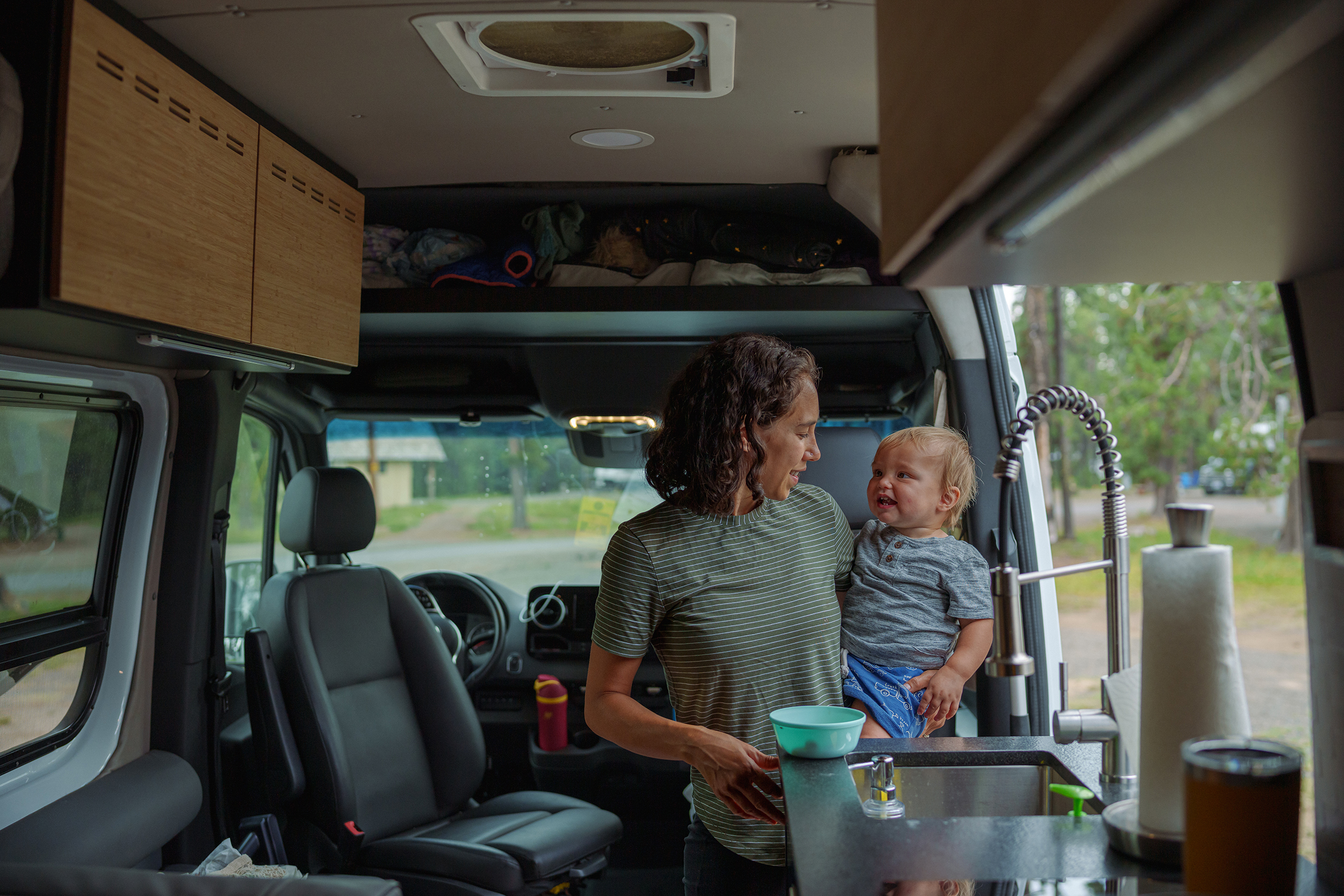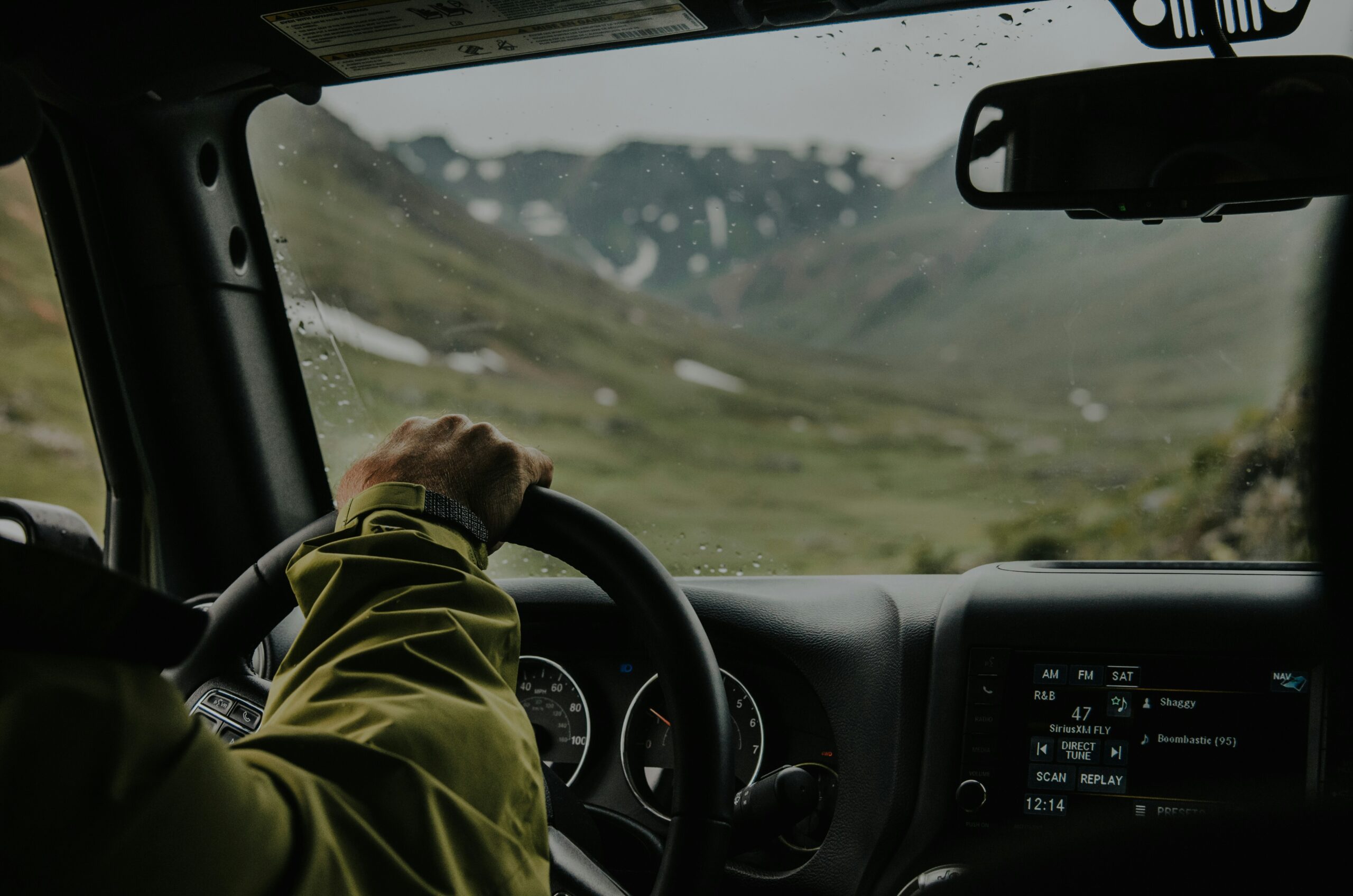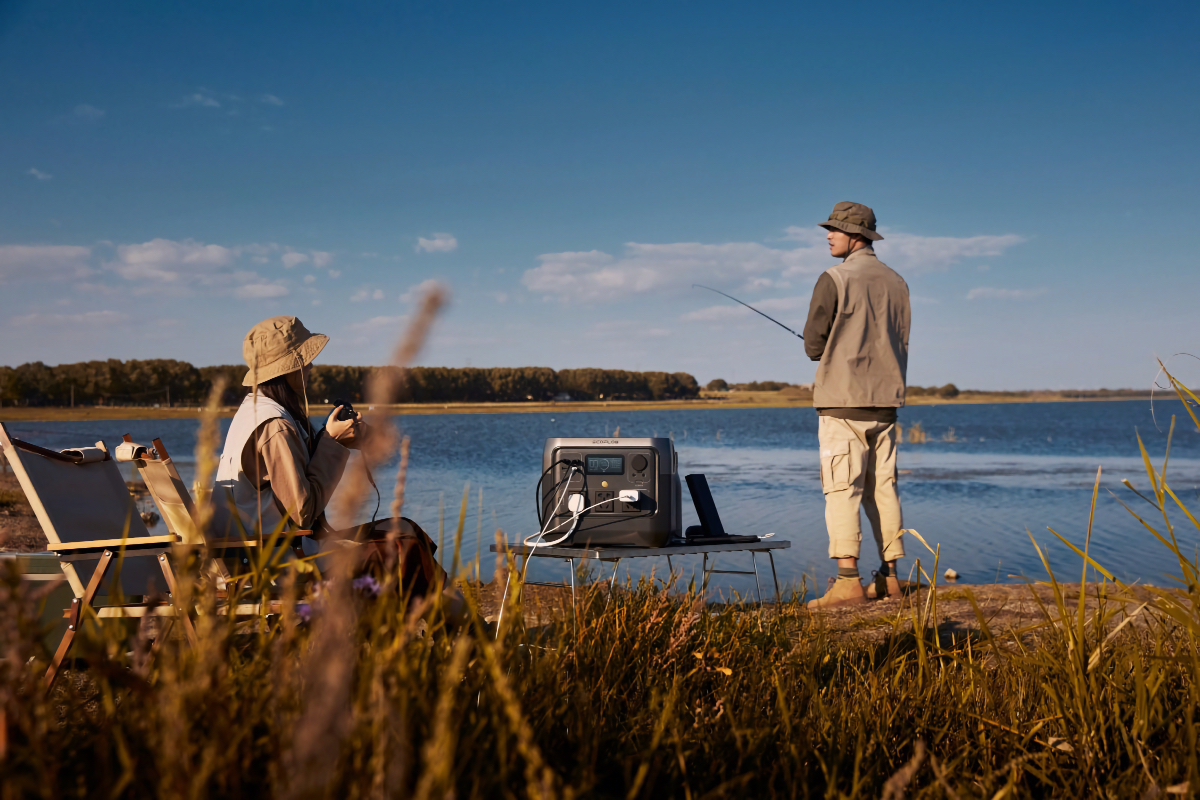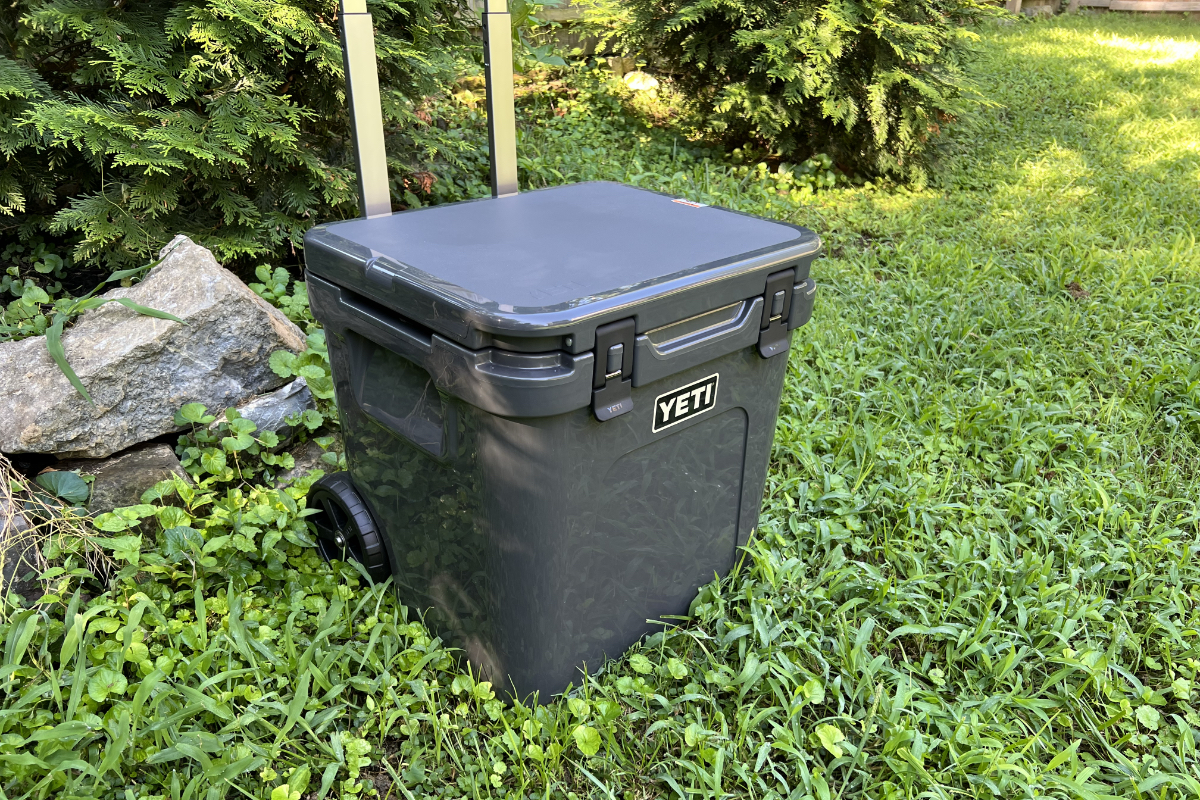The Tool Kit Every RVer Should Take on the Road
Packing a Tool Kit to Fit Your Every Need
Image Caption:
There’s a certain element of self-sufficiency to RVing. From occasional issues on the road to just getting your rig set up and comfortable once you pull into your campsite, being able to handle all of the small to somewhat-major things that pop us is just part of the fun of RVing.
What you can fix depends entirely on your tool kit. You can certainly buy one of the “all-inclusive” tool kits, but it’s far less satisfying than getting all the tools you need and knowing you’ve got the best in the category for each.
Here’s a list of tools you—and every RVer—should take on the road for your next big adventure.
Build Your Own Tool Kit With These Tools
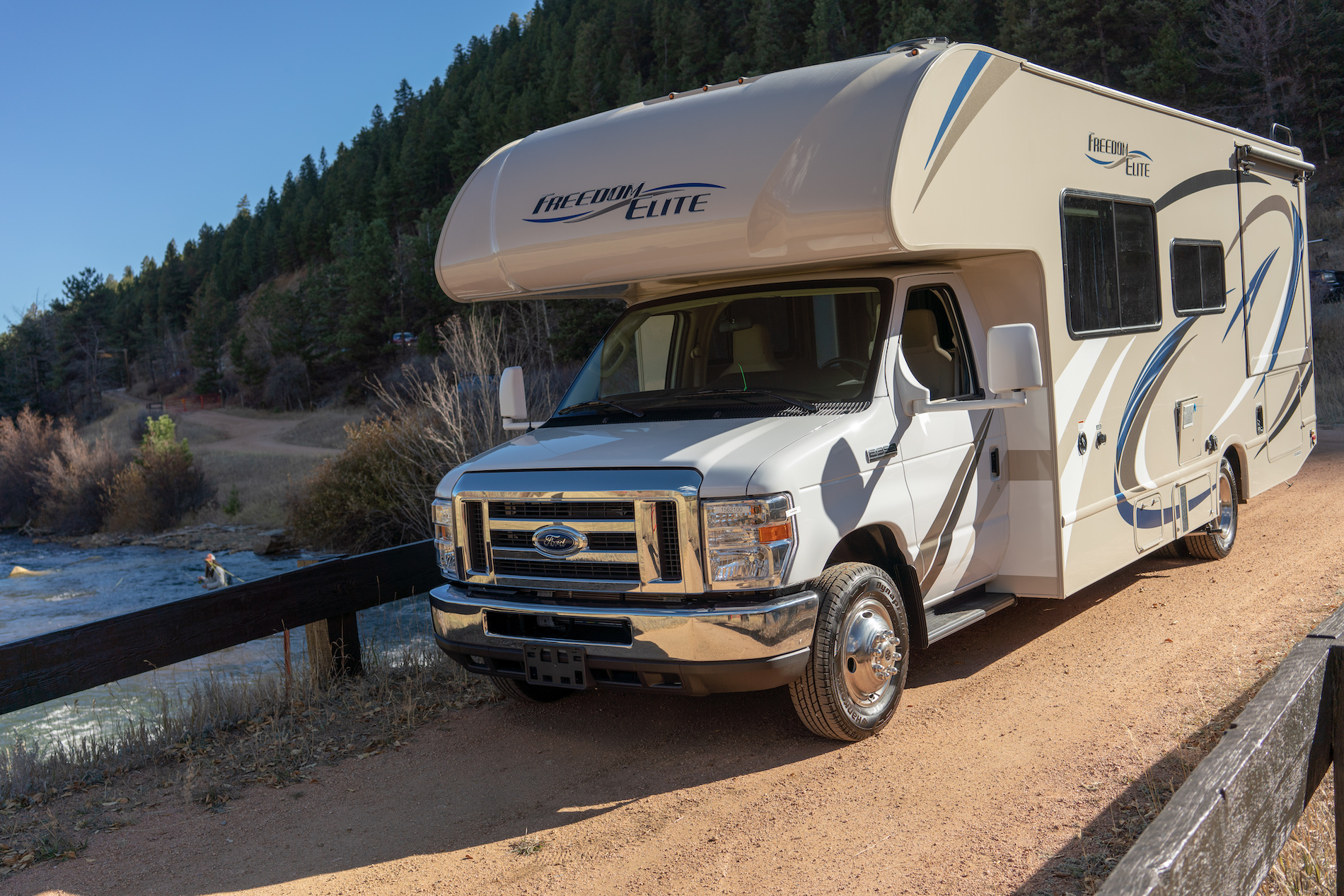
If you’re stopped to make a repair, you’ll need a good tool kit. (Image from Camping World)
Socket & Ratchet Set
Honestly, for the number of nuts and bolts we find ourselves surrounded by, a good socket and ratchet set is invaluable whether you’re an RVer or not. That said, vehicles—from coaches to trailers to the cars and trucks used to pull them—can all be worked on using a good set of sockets and ratchets. Full kits usually come with both standard and metric and come in their own organizer so you’ll never have to search too much to find that specific one you’re looking for.
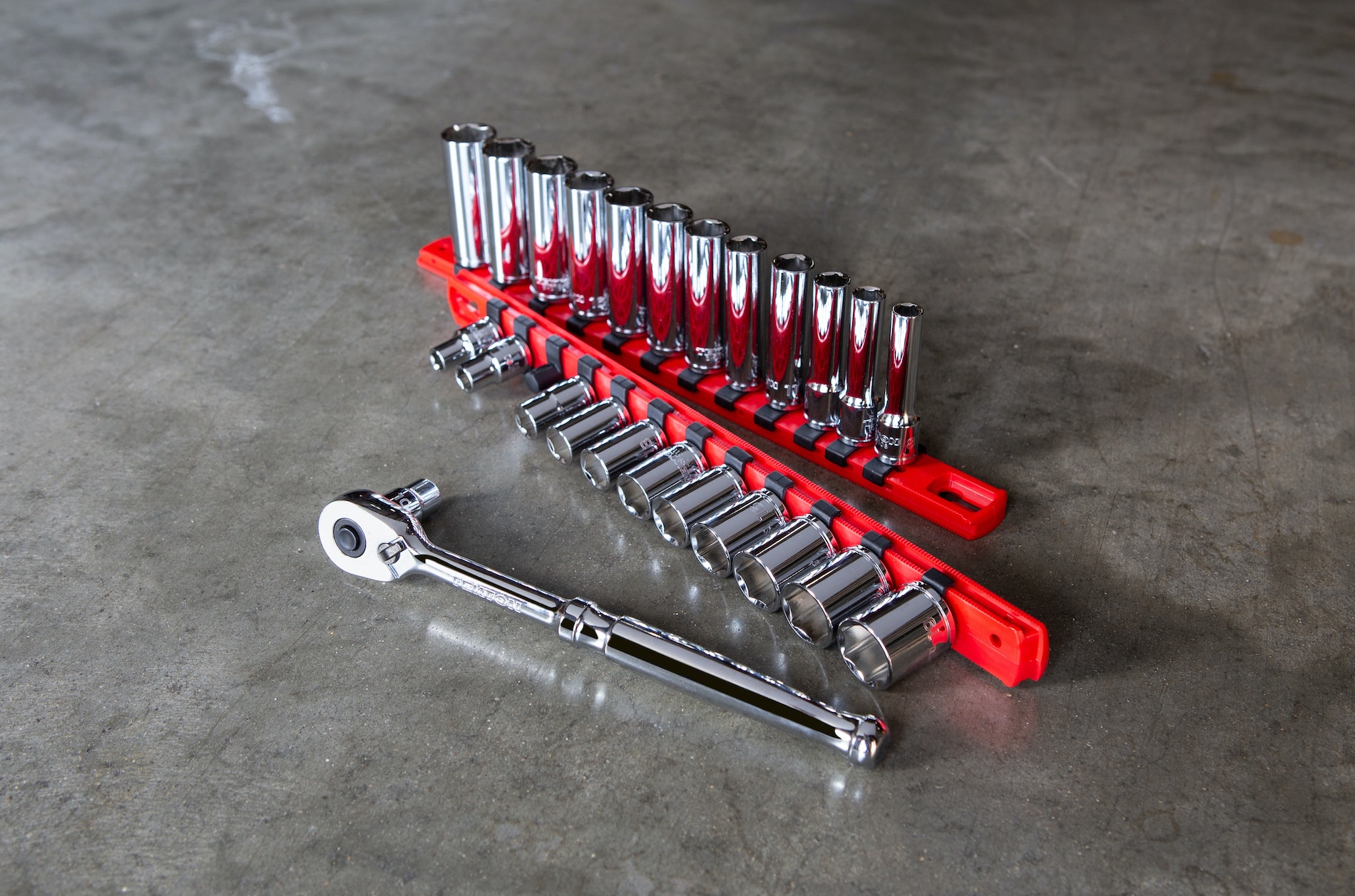
Tube Level
Keeping your RV level—from front to back and side to side—when you’re parking and setting up camp helps keep your RV in better shape for the long haul. Plus, it keeps you safe while you’re walking around inside of it. Some RVers may include bubble levels on their rigs, but even if yours does, it’s a good idea to keep a decent tube level around as a backup.
Tape Measure
Unless you do it professionally somehow, it’s safe to say that many of us are bad at guesstimating lengths and widths. A tape measure takes the guesswork out of it completely. Whether you’re cutting a length of wood to replace something inside, or trying to figure out just how much space you have between you and that tree, a sturdy tape measure has a lot of invaluable applications.
Multimeter
Part of being an RVer is understanding the power you need to make it comfortable. Batteries, solar panels, electrical hookups—they all may play some role in your rig. As you should expect from a rolling house, the electrical systems inside are complex. When you find yourself with a problem, a multimeter can make finding it much easier.
Power Drill
A power drill (specifically a cordless one) can make any number of odd jobs around the RV a breeze. From simply screwing something into a wall to attaching a socket and getting off a stubborn nut, a power drill is worth its weight in gold. Plus, the ability to move it around freely without an extension cord lets you handle jobs more safely, especially if you’re getting on the roof of the RV.
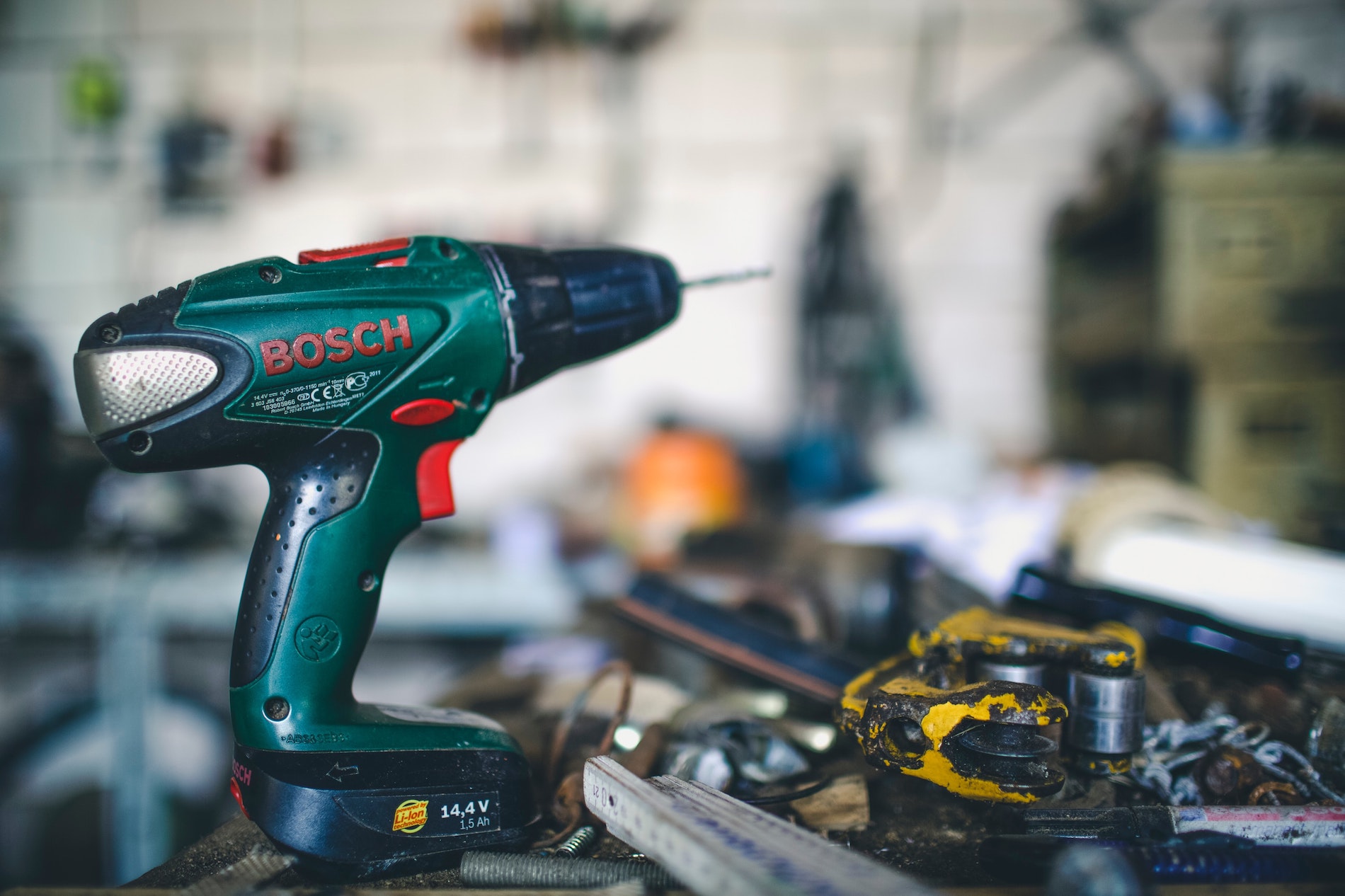
A power drill is a must-have for any tool kit, preferably a battery-powered one. (Image from Unsplash)
Tape
Not just tape, mind you, but a variety of it. Duct tape is a catch-all that does wonders for holding pieces together, sometimes as a permanent fix. But you’ll also want thread seal tape (both gas and liquid-based version). If you’re working with propane in or around your site, gas thread seal tape is just an added safety feature. As for water: you’ll be surprised how often you show up to a campsite and seem to have sprung a leak somewhere—or are dealing with threads from the site that are just overused.
Multi-bit Screwdriver
Space and weight are everything in an RV. You’ll obviously need a screwdriver set in your tool kit, but having a single, multi-bit screwdriver is much lighter and every bit as efficient as a set of flatheads and Phillip’s heads.
Hammer
When all else fails, just knock on something with a hammer until it works again. Mostly kidding, but a good hammer is a good idea for any RVer. Whether you need to knock something back into place, secure something into a position, or knock or pry something loose, a decent hammer goes a long way. You can go with a lightweight sledgehammer, but a claw head doubles as a pry bar, which means one less thing you need to pack into your kit.
Flashlight or Headlamp
In an extension of Murphy’s Law: if something can go wrong in the dark, it will go wrong in the dark. Unfortunately, RV problems don’t work on daylight schedules, and you never know when something bad will happen at night. Obviously at a campsite without a lot of lights, you’ll want some kind of lantern anyway. But a good, high-powered flashlight or better yet, a headlamp, can make a nighttime fix significantly easier.
Pressure Gauge
The tires are perhaps the most important part of your RV. Keeping your tires in top shape means a safer ride for everyone, and the easiest way to do that is to regularly check the tire pressure. There are both digital and analog pressure gauges and what you use is your preference—just make sure you’re keeping your tires in the range they should be.
Pliers
There are dozens of types of pliers, but you should really just need a couple of types. Needle nose pliers come in really handy for grabbing things in small spaces and making precise bends. Otherwise, adjustable or slip pliers should give you the flexibility to handle almost any other job.
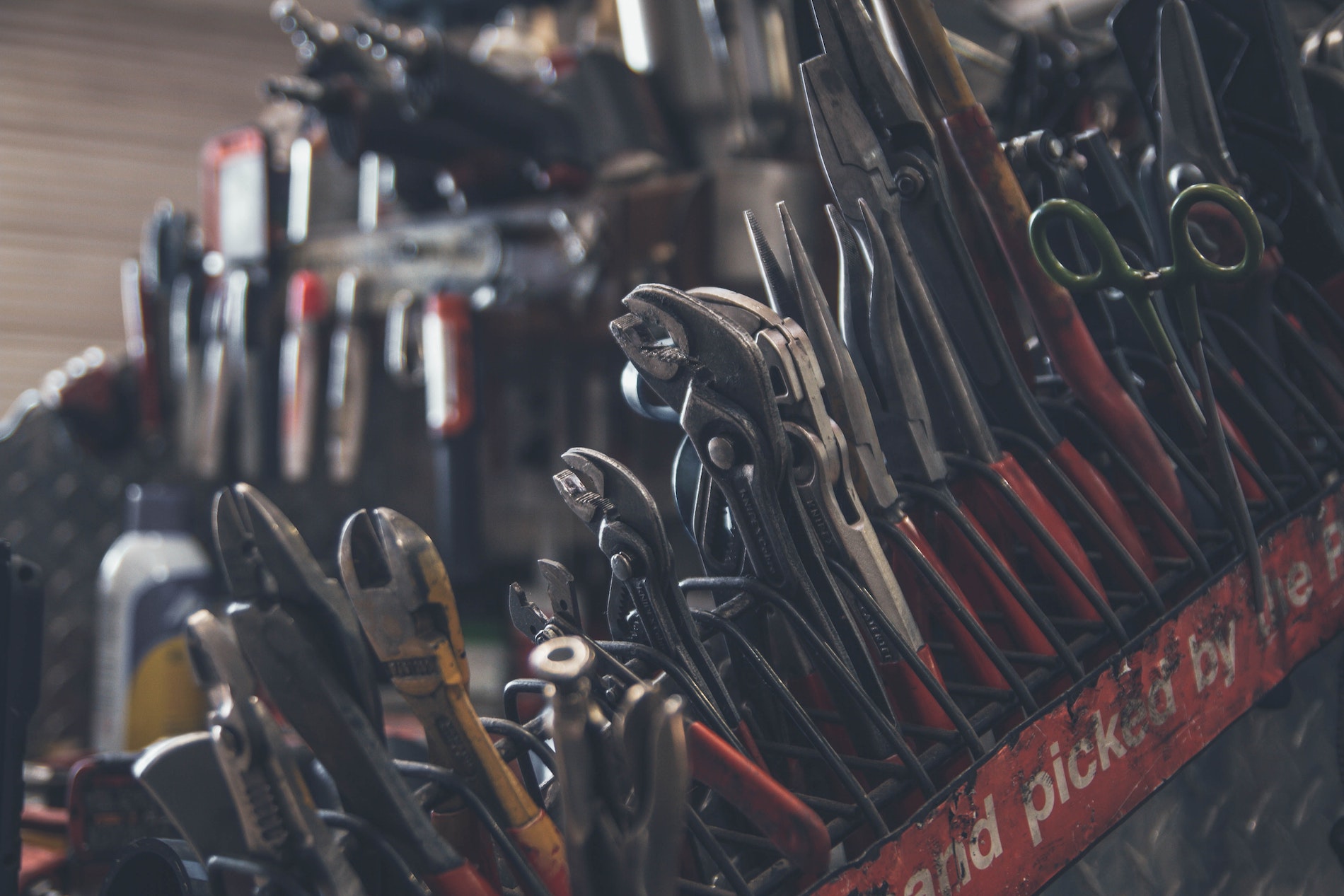
It’s smart to have an assortment of pliers for your tool kit. (Image from Unsplash)
Adjustable Wrench(es)
Along with the pliers, a set of adjustable wrenches (or just one, if it’s got a wide range to it) should be plenty for handling most jobs around your RV.
Bungee Cords & Zip Ties
Sometimes, things won’t close or stay together when they should. For those, bungee cords and zip ties are the best set of tools you can have with you. Whether it’s giving your door a little extra encouragement to stay closed on the road, or keeping a bunch of new wires for your solar kit together in one place, keep a small set of each around for when you need them.
Work Gloves
Not only can working on an RV be a dirty job, but it can also be dangerous. A sturdy set of work gloves can protect your hands from cuts, scrapes, and sometimes things that are much worse. Keep some gloves in your tool kit or glove box, and you’ll be amazed at the number of times you use them.
Pocket Knife & Utility Knife
A simple knife can do so many things. Specifically, it’s key for cutting, slicing, and trimming. A knife is always a good idea when you’re in the woods or out with nature, but even more so when you’re traveling in an RV. Even if you’re not working, it’s great for slicing an apple or a piece of cheese—just make sure you clean it after scraping the gunk off part of the engine.

